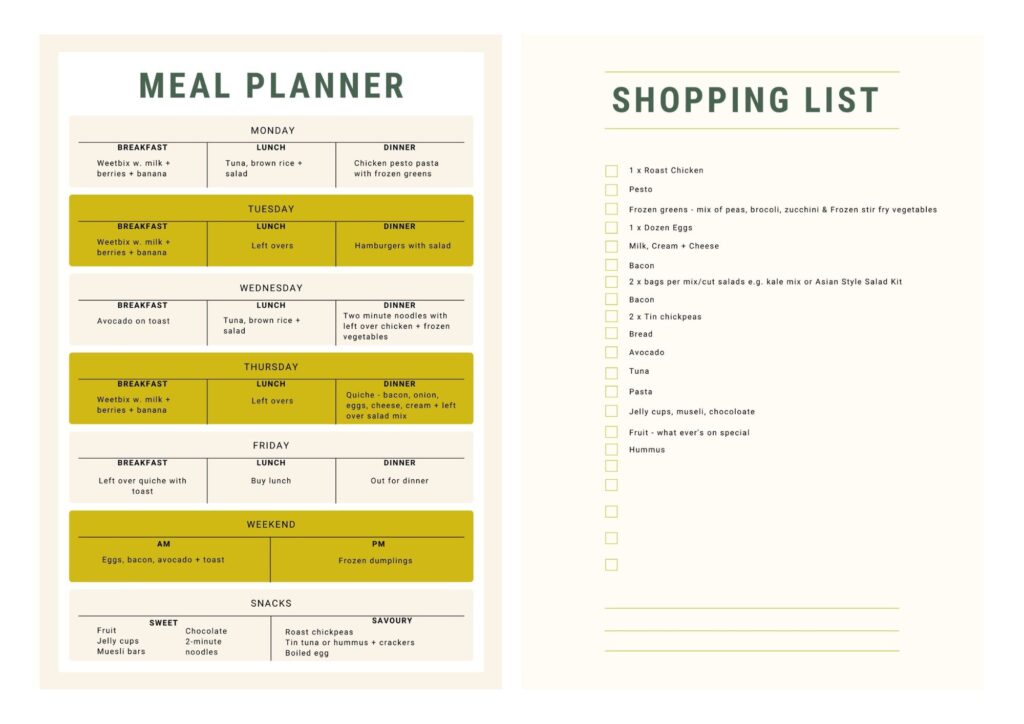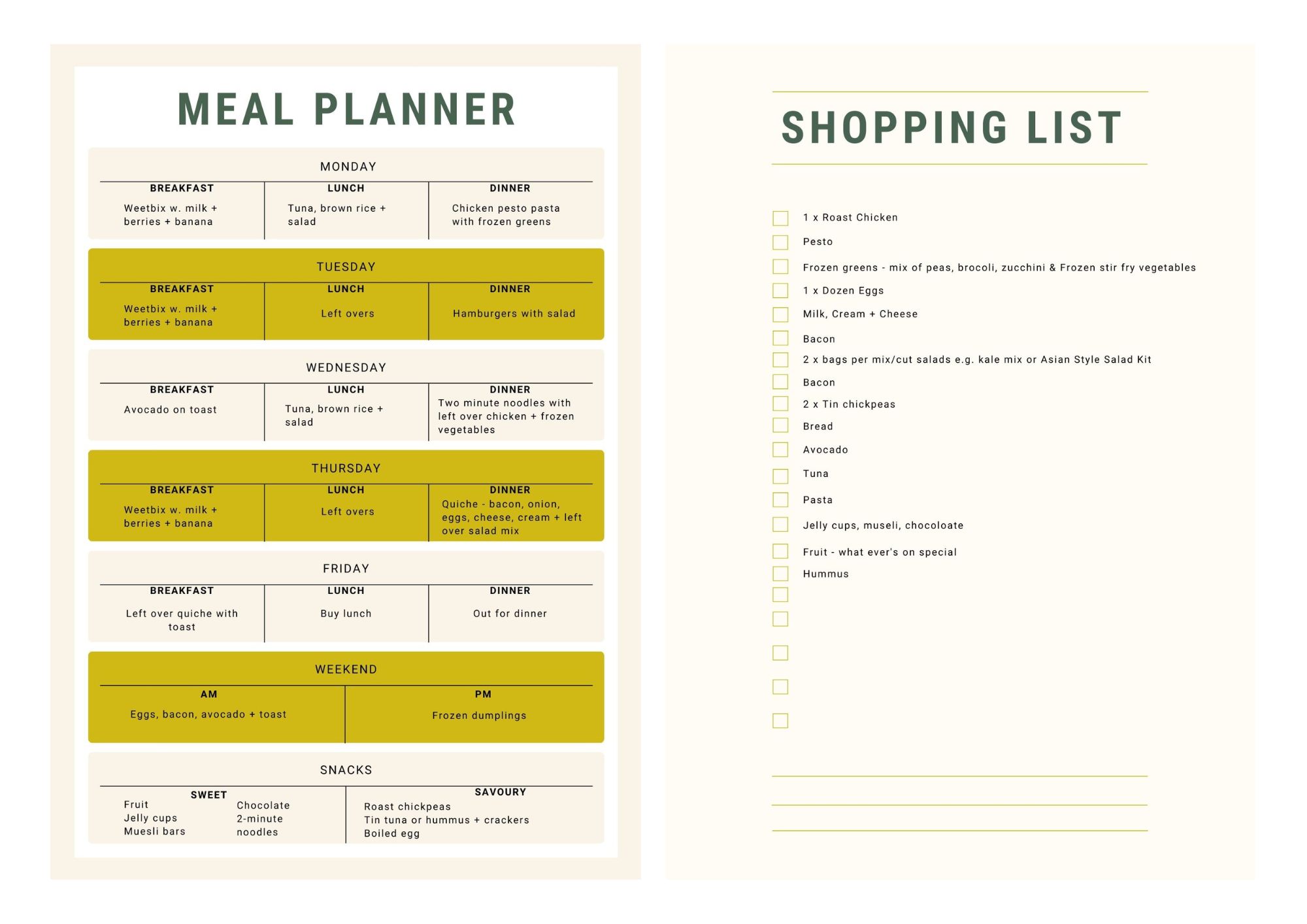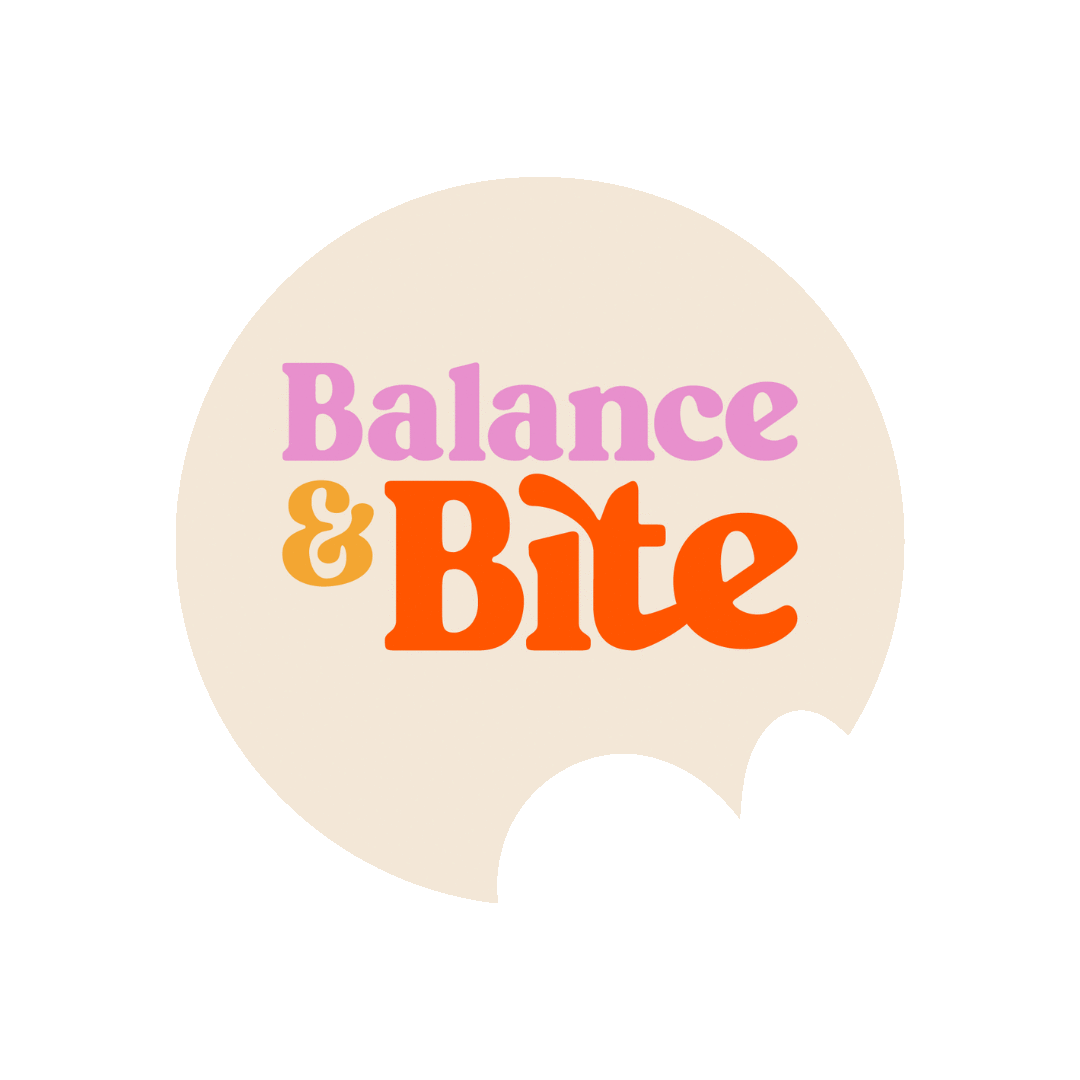A guide to non-diet meal planning
Let me preface this article by saying, “I don’t like meal planning”. It’s often dull and rigid, and can’t predict what I’ll feel like on a Wednesday evening at 7 pm. But I’m also not overly fond of cutting and chopping ingredients and preparing meals from scratch every night of the week.
So you see my predicament. And perhaps you relate to this too??
Alas, I have a solution. Non-diet meal planning.
A loose yet semi-thought-out plan to help me eat enough and get the nutrients I need without spending hours in the kitchen each day.
No weight loss advice. No food rules. Just easy tips to bring some fun and simplicity to the kitchen!
Tips for non-diet meal planning
Work with your schedule, not against it
The main difference between traditional meal planning and a non-diet approach is that everything has to work around your current schedule and what you already do/like.
Because we want this to be a sustainable and resentment-free activity.
Before you start planning, I invite you to consider these questions:
- How often can you go to the supermarket, prep food and clean up afterwards?
- What are your taste preferences and favourite cuisines?
- What are your favourite/go-to meals?
- Do you have time to cook lunch daily, or are leftovers more convenient?
*The answers to this might change weekly, fortnightly or monthly, and that’s ok. Lean into your likes and dislikes and what works for you.
Some hypotheticals
If you don’t have time to chop and prepare fruits and vegetables, can you buy pre-cut options?
If you can only shop once a fortnight, can you buy more frozen fruits and vegetables or frozen meals and soups?
If you don’t have time to cook lunch each day, can you buy extra ingredients so you have leftovers?
If you have a busy week coming up, can you buy quick and easy ready meals that you like?
If you hate cooking every night, can you plan to batch larger quantities of certain meals and freeze a few potions?
Remember to work around your schedule and budget and be flexible. Every week will be slightly different to the next. Settling a regular meal planning routine requires some trial and error. But after a few years of using this loose system, I now have 4-5 go-to meals I rotate over a fortnight which frees up so much time and energy.
Roughly plan out meals in advance
Unlike meal plans, which recommend a specific amount and type of food each day, this type of meal planning is about having a rough idea of what you want to each without the rigidity. If you’re new to non-diet meal planning, start by planning a week of breakfast, lunch, dinner and snacks to see what works well with your routine.
I’ve given you a snapshot of what a typical week might look like in my house. I cook for two people, work predominately from home and enjoy cooking, so my meal planner might look completely different to yours. Some weeks I’ll eat the meals in order. Other weeks I’ll eat Thursday’s dinner Monday and Wednesday’s dinner Tuesday; it just depends. Some weeks I’ll cook dinner every night. On other weeks I might be out for dinner for three nights.


Cover the main food groups
On the day’s when you cbf cooking a “proper” meal, it’s handy to have a range of carb, protein and fat sources in your cupboard to whip up an easy meal quickly. And don’t forget the flavour (see the next tip) – the secret to gentle nutrition. Here are some of my favourite pantry, fridge and freezer staples.
Quick carb sources
- Microwaved rice
- Ready-cooked pasta pots
- Cous Cous
- Bread
- Wraps
- Noodles
- Frozen potato gems/chips
Quick protein sources
- Eggs
- Tofu
- Nuts (inc. peanut butter)
- Ready-made hamburgers or sausages (fresh or frozen)
- Tinned fish
- Baked beans (nothing wrong with baked beans on toast for dinner)
- Roast chicken (my personal favourite)
- Roasted chickpeas
- Roasted nuts and seeds
Quick fat sources
- Cheese
- Yoghurt
- Avocado
- Butter and olive oil
Quick fibre source
- Vegetables (fresh, canned, frozen)
- Fruit – dried, fresh or frozen
- Legumes, e.g. chickpeas, lentils, beans – The holy grail pantry staple
- Frozen vegetables
Remember the condiments, crunchy morsels and salty puffs.
- Pesto
- Olive oil
- Curry paste
- Coconut milk
- Meal kit sauces
- Mayonaise
- Soy sauce
- Nimh Jim dressing
- Mustard
- Corn chips
Frozen and canned options are your time-saving BFFs
Unfortunately, frozen and canned vegetables get a lot of criticism. It’s unfortunate because they’re the secret weapon in making *fast* healthy meals that taste delicious.
They’re cheaper, already prepped, and often more nutritious than their fresh counterparts.
If you have a food rule not to use frozen or fresh vegetables but struggle to eat vegetables during the week, ask yourself if this rule is still helping you? And consider – would you eat more vegetables if you allowed yourself these convenient alternatives?
Be flexible
Remember that meal prepping is not a one-size-fits-all solution; you don’t have to be perfect. Be flexible, and don’t stress if things go differently than planned. If you have food creeping closer to its expiry date, or you feel like ordering takeaway instead of cooking, put the ingredients in the freezer and cook with them next week.
Optional tips
Brush up on your cooking skills
If you’re a novice in the kitchen and need help even to boil an egg, you might struggle with this throw-it-all-together and hope for the best cooking style. If it’s available to you, and you’re keen to learn, attending a local cooking class equipping you with some essential boiling, grilling, frying and baking skills will go a long way in your meal planning game.
Reminder: Despite what we see on Instagram, healthy and satisfying meals don’t have to look picture-perfect.
What’s the difference between meal planning and a meal plan?
A meal plan is a set of recommended meals, snacks and drinks to consume over a period (e.g. a week or month), usually to meet specific nutrition, macro or weight targets. In contrast, meal planning is about making a conscious effort to have a variety of healthy and tasty foods available to quickly create filling meals and snacks you enjoy.
Feeling overwhelmed by some of the foods on this list?
Nutrition doesn’t have to be complicated, and eating well doesn’t require eating hundreds of different food sources each week.
If, for whatever reason, reading this article makes you feel uneasy or you notice diet culture showing up, make some time to tune into your food rules and gently challenge them by asking is this rule actually helping me? Or get in touch to see how we can work through and overcome these rigid food rules together.
Erin’s an Accredited Practising Dietitian & Certified Intuitive Eating Counsellor. She uses a non-diet approach and weight-inclusive care to help her clients reclaim a healthy relationship with food and their bodies free of guilt, shame and restriction.












View comments
+ Leave a comment